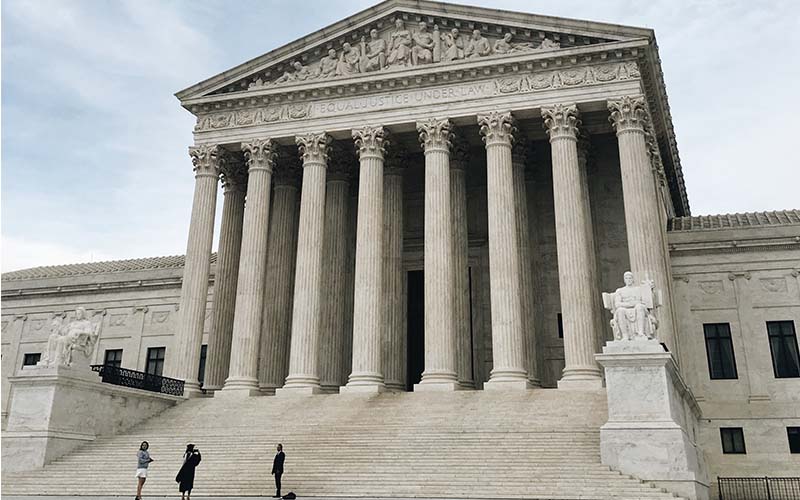COBRA Administration for Employers (+What Makes A Good Administrator)
If your company has 20 or more employees and you provide a group health plan, you probably already know that you have to offer Consolidated Omnibus Budget Reconciliation Act (COBRA) coverage when employees leave or experience certain other qualifying events. However, it’s also important to understand the requirements for administering this type of coverage. COBRA administration involves a lot of steps and, if you don’t complete them correctly, you risk costly penalties for noncompliance. What do you need to know about administering COBRA to stay fine-free? Let’s find out.
In this article, we’ll explain what’s involved with COBRA administration, COBRA compliance considerations you need to be aware of, whether you can handle administration yourself or should outsource the function, and the costs involved. After reading this, you’ll understand how to stay compliant, whether you choose to handle administration yourself or use a COBRA administrator.
It's important to note that while you may not have to offer COBRA coverage because of your size, be aware that in many states, if you have less than 20 employees, you’ll need to provide something called mini-COBRA or state continuation coverage. For the purposes of this article, we’ll just focus on federal COBRA administration.
What is COBRA administration?
COBRA administration is the process of managing the steps involved to comply with COBRA properly and on time in order to meet your legal obligation to provide employees and their families the option to continue their group health insurance for a certain period of time after a qualifying event.
Administration can either be handled by you as the employer, a third-party administrator (TPA), or COBRA administrator; however, if you outsource administration, you are still responsible for complying with the law.
What’s involved with administering COBRA?
The biggest task you’ll need to manage when it comes to COBRA administration is providing employees and their families with certain notices explaining their COBRA rights. When issuing these notices, you’ll have to adhere to very specific timelines required for each type.
- Summary Plan Description (SPD): This document describes the rights of participants and beneficiaries under the plan and how the plan works. You’re required, under ERISA, to give each participant a SPD within 90 days after becoming a plan participant.
- General Notice: The general notice must be provided within the first 90 days of coverage. Group health plans can satisfy this requirement if the SPD includes the general notice. A model notice can be found on the Department of Labor’s site.
- Qualifying Event Notice: If a qualifying event occurs, you may need to notify the health plan that an employee is eligible within 30 days. As an employer, you’re only required to notify your plan if you’ve terminated or reduced the hours of an employee, the employee passed away, or they became eligible for Medicare. Otherwise, for example, in the case of divorce, it’s up to the employee or qualified beneficiary to notify the plan.
- Election Notice: After the plan receives notice of a qualifying event, it must provide the qualified beneficiary an election notice within 14 days that describes their rights to continuation coverage as well as how to make an election. Again, the DOL has a model election notice on its site.
- Unavailability of Continuation of Coverage Notice: When a group health plan denies a request for continuation coverage or extension request, the plan must give the denied individual a notice of unavailability of continuation coverage within 14 days of receipt of the request.
- Early Termination of Coverage Notice: If continuation coverage is terminating early, such as when premiums aren’t paid in full on a timely basis or the participant begins coverage under another group health plan, you need to give the beneficiary a notice of early termination as soon as practicable after you make the decision.
In addition to these notice rules, COBRA administration also involves collecting premiums, reinstating coverage, and supplying appropriate notices if premiums are not received.
Are there any COBRA compliance considerations with plan administration?
With the number of requirements involved with COBRA administration, it’s no surprise that there are several compliance considerations you’ll need to be aware of. The most common violations arise from the following:
- Failing to give employees notices for all their plans subject to COBRA
- Omitting the legal name of the plan or the contact information for the plan administrator
- Not properly describing when COBRA will terminate early
- Not properly describing the maximum coverage period
- Not indicating how to make COBRA payments and when the payments are due
What are the fines for COBRA administration errors?
If you fail to meet COBRA requirements, you can face potential penalties from both the IRS and DOL.
- IRS: The IRS can levy a $100 a day tax penalty for each qualified beneficiary, or $200 if more than one family member is affected. The good news is that if your violation was found to be accidental, you may be granted a 30-day grace period to fix the issue.
- ERISA: The DOL can also fine you up to an additional $110 a day per participant. You’ll also want to be aware that you could face the risk of a lawsuit if you breach your ERISA fiduciary duty by not offering COBRA coverage under ERISA. The average cost to defend COBRA litigation is $45,000.
These fines can be assessed for any violation that causes your company to be out of compliance with COBRA regulations.
Can I handle COBRA myself?
As you can see, handling COBRA administration can be complex. While you can choose to administer COBRA yourself for little to no cost, you’ll want to make sure you understand what’s required and that your practices are in compliance with the regulations to protect yourself. Alternatively, the high risk of financial penalties related to erroneous COBRA administration leads many companies to outsource administration to a TPA or COBRA administrator. These partners can:
- Keep track of COBRA processes and timeframes
- Limit your liability since TPAs typically assume financial responsibility for their errors (but not yours)
- Minimize costs of in-house resources
- Offer online account administration
- Deliver comprehensive reporting
- Provide a buffer between former workers and your company
- Free you up to focus on more strategic activities
What is the cost of COBRA administration when you outsource?
Each COBRA administrator will charge differently but you’ll generally pay a one-time set-up fee plus a yearly cost for administration. For reference, CPS’ annual administration fee is $350, which works out to about $30 a month.
What makes a good COBRA administrator?
If you decide that using a COBRA administrator is a good option to ensure you meet your requirements, there are several things to look for as you evaluate your choices. Some considerations you’ll want to take into account include:
- Experience: You’ll want to look for an administrator that has specialized knowledge of COBRA to help you comply with the requirements. Before you select a provider, ask who will be assigned to your team and find out their background and level of compliance expertise.
- Support: Each administrator will provide client support but it will vary. Find out up front what you can expect. Ask if you’ll be assigned one dedicated professional who is responsible for day-to-day management – and how accessible they’ll be. You’ll also want to find out their process for issue resolution or how you can access support if your specialist isn’t available.
- Services: Using a COBRA administrator should make it as easy as possible and relieve you by outsourcing management of the day-to-day administration. When evaluating your options, find out what you can expect from them in terms of both daily tasks as well as annual ones.
- Other Offerings: Since an administrator should make your COBRA administration easier, find out what other products or services they offer that can help you enhance efficiencies for managing your health coverage. For example, do they have an Human Resource Information System (HRIS) for benefits enrollment? Do they also work as a broker to help you find the best coverage options? You have a lot to worry about as an employer so you’ll want to find a partner that will take as much off your plate as possible.
As you evaluate COBRA administrators, you may wonder if Complete Payroll Solutions (CPS) would be a good fit for your organization. While we know we’re not a match for everyone, our one-on-one approach and experienced administration team make us the right choice for many businesses. To learn more about what you can expect with CPS, read our next article on the COBRA administration services we offer.
in
 Benefits
,
Health Insurance
,
COBRA
Benefits
,
Health Insurance
,
COBRA






